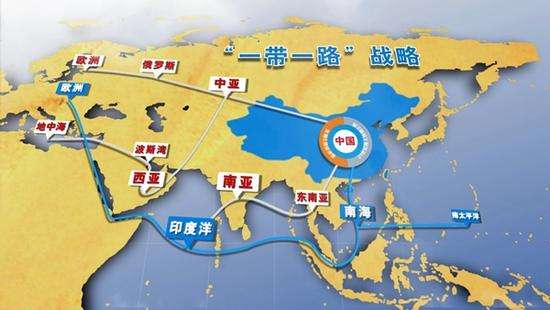Belt & Road Summit takes stock, looks to future

By David Maguire
China is stepping up its status as a globalization activist with its biggest diplomatic event of year, the One Belt, One Road Summit in Beijing on May 14 and 15. The OBOR concept has been developing over the past three years and this first phase of its iteration is, in a sense, being signaled by the summit.
Leaders from nearly 30 countries are expected to attend the event which will underscore Beijing's free trade credentials amid political climates around the world which are veering toward stronger protectionist policies.
The summit will focus on China's new Silk Road Plan, a 'route' linking Asia, Africa and Europe and involving the investment of billions of dollars in infrastructure projects including roads, rail, seaports and power grids.
China's foreign minister Wang Yi has said the cultural and historic genesis for One Belt, One Road (OBOR) is the old Silk Road trading route so it's immediate region of influence is Eurasia.
Hence, the leaders of the most strongly benefitting nations, Russia, Cambodia, Pakistan, Myanmar and Kazakhstan, among others, are attending the summit.
However representation at the event is much broader as a greater understanding takes hold of the magnitude of the Chinese concept, first launched in 2013, and its genuine intent to plug infrastructure gaps.
"One Belt, One Road is to date the most important public good China has given to the world, first proposed by China but for all countries to enjoy," Wang said.
The two-day meeting in May, he said, is "an economic cooperation forum, an international cooperation platform" and there is no underlying political intent.
An underlying motivation for the summit is for China to provide new opportunities and impetus for international cooperation and to support a new era of globalization that is open, inclusive and beneficial.
The One Belt, One Road moniker is a conflation of the title of the initiative launched by Chinese leader Xi Jinping as The Silk Road Economic Belt and the 21st-century Maritime Silk Road in September-October 2013.
The concept stimulated international debate in its early days and understanding has deepened as China continued to build political and trade alliances in support across a wide span of nations and continents.
The upcoming summit is therefore timely in signifying a new phase and is the most high-profile event China has organized to not only recognize the initial OBOR achievements but also to consolidate support for the future. It has significant importance for future regional and international trade and economic cooperation.
As State Councilor Yang Jiechi said, China is looking through the OBOR to align its "development with that of other countries and encourage greater synergy between their respective development strategies and cooperation under the Belt and Road initiative."
The early achievements of the OBOR concept that the summit will seek to build on are many and indicate that it is not a solo show.
Yang said the outcomes "have been fruitful," the progress "faster than expected" and important early gains have been made.
More than 100 countries and international organizations are reported to have joined the initiative, more than 40 of them signing cooperation agreements with China.
"The UN General Assembly, the UN Security Council, UNESCAP, APEC, ASEM, the GMS have all incorporated or reflected Belt and Road cooperation in their relevant resolutions and documents," Yang said.
He added that development of an economic corridor to smooth the flow of trade and investment is making steady progress, an interconnected infrastructure network is evolving, and key project cooperation is underway.
Financial support is coming from the Asian Infrastructure Investment Bank (AIIB) and Silk Road Fund and China Railway Express trains are moving goods across the vast Eurasian continent
Outside the immediate region, Britain has become the westernmost point of OBOR development, signified by the arrival at Barking Station in London of a freight train from China's small-goods trading mecca of Yiwu in Zhejiang Province. The transport company, Chengdu-Euro Express Railway, is operating one of the largest land trade routes by volume between Asia and Europe.
While many British companies have participated in OBOR development projects, the UK's strongest indication of support was its participation in the China-led Asia Infrastructure Investment Bank.
Closer to China, all five members states of the Eurasian Economic Union, a bloc established in 2015 by Russia, Kazakhstan, Armenia, Belarus and Kyrgyzstan, have agreed to cooperate under the Silk Road Economic Belt framework. Businesses isolated from trade with Europe in this bloc are seeking to benefit from the China connections.
The vast reach of the OBOR network also has resulted in significant infrastructure benefits in North Africa, including schools and hydroelectric projects in Sudan.
The May 14-15 forum agenda is "Belt and Road: Cooperation for Common Prosperity" and will focus on connectivity of policy, transportation, trade, finance and people. Discussion topics will include infrastructure connectivity, economic cooperation and trade, industrial investment, energy and resources, financial support, people-to-people exchanges, ecological and environmental protection and marine cooperation.
Dr. David Maguire is a regular radio and online commentator for China Radio International.






